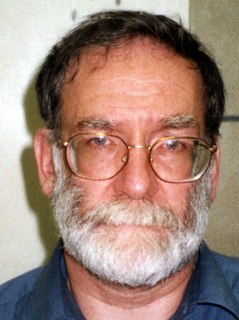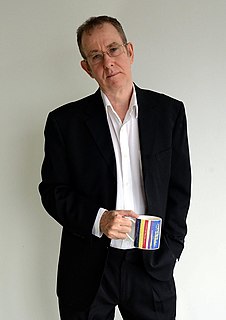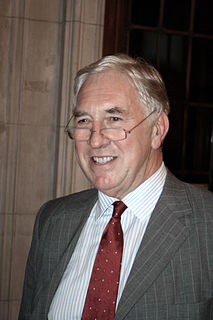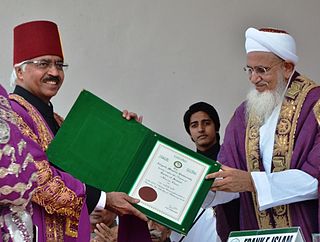Related Research Articles

Harold Frederick Shipman , known to acquaintances as Fred Shipman, was an English general practitioner who is believed to be one of the most prolific serial killers in modern history. On 31 January 2000, he was found guilty of the murder of 15 patients under his care; his total number of victims was approximately 250. Shipman was sentenced to life imprisonment with the recommendation that he never be released. He died by suicide, hanging himself in his cell at HM Prison Wakefield, West Yorkshire on 13 January 2004, a day before his 58th birthday.
David Southall is a British paediatrician who is an expert in international maternal and child hospital healthcare and in child protection including the diagnosis of the controversial Fabricated or Induced Illness, and who has performed significant research into Sudden Infant Death Syndrome (SIDS).
The Burzynski Clinic is a controversial clinic offering an unproven cancer treatment. It was founded in 1976 and is located in Texas, United States. It is best known for the controversial "antineoplaston therapy" devised by the clinic's founder Stanislaw Burzynski in the 1970s. Antineoplaston is Burzynski's term for a group of urine-derived peptides, peptide derivatives, and mixtures that Burzynski named to use in his cancer treatment. There is no accepted scientific evidence of benefit from antineoplaston combinations for various diseases.

Brian Deer is a British investigative reporter, best known for inquiries into the drug industry, medicine and social issues for The Sunday Times. Deer's investigative nonfiction book, The Doctor Who Fooled the World, was published in September 2020 by Johns Hopkins University Press.

Ben Michael Goldacre is a British physician, academic, and science writer. As of March 2015, he is a senior clinical research fellow at the Centre for Evidence-Based Medicine, part of the University of Oxford's Nuffield Department of Primary Care Health Sciences. He is a founder of the AllTrials campaign and OpenTrials to require open science practices in clinical trials.

The General Medical Council (GMC) is a public body that maintains the official register of medical practitioners within the United Kingdom. Its chief responsibility is to "protect, promote and maintain the health and safety of the public" by controlling entry to the register, and suspending or removing members when necessary. It also sets the standards for medical schools in the UK. Membership of the register confers substantial privileges under Part VI of the Medical Act 1983. It is a criminal offence to make a false claim of membership. The GMC is supported by fees paid by its members, and it became a registered charity in 2001.

Stephen Nicholas Cluley Bolsin is a British anaesthetist whose actions as a whistleblower exposed incompetent paediatric cardiac surgery at the Bristol Royal Infirmary leading to the implementation of clinical governance reforms in the United Kingdom.

Andrew Jeremy Wakefield is a British former physician and academic who was struck off the medical register due to his involvement in the Lancet MMR autism fraud, a 1998 study that falsely claimed a link between the measles, mumps, and rubella (MMR) vaccine and autism. He has subsequently become known for anti-vaccination activism. Publicity around the 1998 study caused a sharp decline in vaccination uptake, leading to a number of outbreaks of measles around the world. He was a surgeon on the liver transplant programme at the Royal Free Hospital in London and became senior lecturer and honorary consultant in experimental gastroenterology at the Royal Free and University College School of Medicine. He resigned from his positions there in 2001, "by mutual agreement", then moved to the United States. In 2004, Wakefield began working at the Thoughtful House research center in Austin, Texas, serving as Executive Director there until February 2010, when he resigned in the wake of findings against him by the British General Medical Council.

Philip Alexander Poole-Wilson FRCP, FESC, FACC, FMedSci was a British academic cardiologist of international reputation who had particular interest in the management of heart failure. His research helped to identify the cellular mechanisms behind heart failure and was also important in improving treatment for patients. He was instrumental in raising the profile of heart failure as a major public health problem.
Sir Duncan Brian Walter Ouseley, styled The Hon. Mr Justice Ouseley, is a recently retired High Court judge in England and Wales, Queen's Bench Division. He is notable for involvement in many legal cases reported in the British press.
Membership of the Royal College of General Practitioners (MRCGP) is a postgraduate medical qualification in the United Kingdom (UK) run by the Royal College of General Practitioners (RCGP). On successful completion of the assessment, general practitioners are eligible to use the post-nominal letters MRCGP that indicate Membership of the RCGP.
Sir Terence John Stephenson, is a Northern Irish consultant paediatric doctor and chair of the Health Research Authority (HRA). He is also the Nuffield Professor of Child Health at University College London (UCL). Stephenson was most notable for guiding the RCPCH in agreeing 10 published national standards, Facing the Future: Standards for Paediatric Services. This was the first time the College committed publicly to a defined set of standards for all children receiving inpatient care or assessment across the UK.

Ashok Seth is an Indian interventional cardiologist, credited with the performance of over 50,000 angiograms and 20,000 angioplasties, which has been included in the Limca Book of Records, a reference book for achievements and records from an Indian perspective. He is a Fellow of the Royal Colleges of Physicians of London, Edinburgh and Ireland and serves as the chief cardiologist, holding the chairs of the department of cardiovascular sciences and cardiology council at the Fortis Healthcare. Seth, a recipient of the Order of Isabella the Catholic, was honored by the Government of India with the fourth highest Indian civilian award of Padma Shri, in 2003, followed by Padma Bhushan, the third highest Indian civilian award, in 2015.

Study 329 was a clinical trial which was conducted in North America from 1994 to 1998 to study the efficacy of paroxetine, an SSRI anti-depressant, in treating 12- to 18-year-olds diagnosed with major depressive disorder. Led by Martin Keller, then professor of psychiatry at Brown University, and funded by the British pharmaceutical company SmithKline Beecham—known since 2000 as GlaxoSmithKline (GSK)—the study compared paroxetine with imipramine, a tricyclic antidepressant, and placebo. SmithKline Beecham had released paroxetine in 1991, marketing it as Paxil in North America and Seroxat in the UK. The drug attracted sales of $11.7 billion in the United States alone from 1997 to 2006, including $2.12 billion in 2002, the year before it lost its patent.
The Shape of Training was a review of postgraduate medical education and training in the United Kingdom, which reported in 2013. The review was undertaken to consider workforce issues, such as the balance between specialisation and generalism in medicine. The review was supported by a range of organisations concerned with medical education and had an independent chair, Professor Sir David Greenaway.

The Medical Schools Council is an organisation that represents 41 medical schools and one post graduate school in the United Kingdom. The membership is made up of the heads, or deans of the medical schools. It was formerly known as the Council of Heads of Medical Schools.

Jack Adcock, a 6-year-old child, was admitted to Leicester Royal Infirmary (LRI) on 18 February 2011. He died later that day, in part because of failings in his treatment. Dr Hadiza Bawa-Garba, the junior doctor who treated him and a nurse, Isabel Amaro, were subsequently found guilty of manslaughter on the grounds of gross negligence. Both were subsequently struck off their respective professional registers, although Bawa-Garba had that decision overturned at appeal. There is an ongoing debate about the judgements against Bawa-Garba, partly around Bawa-Garba's personal culpability versus a context of systemic failures, and partly around the possible use of her reflective notes about her own practice as evidence.
The Lancet MMR autism fraud centred on the publication in February 1998 of a research paper titled "Ileal-lymphoid-nodular hyperplasia, non-specific colitis, and pervasive developmental disorder in children" in The Lancet. The paper, authored by Andrew Wakefield and listing twelve coauthors, claimed to link the MMR vaccine to colitis and autism. The fraud was exposed in a lengthy Sunday Times investigation by reporter Brian Deer, resulting in the paper's retraction in February 2010 and Wakefield being struck off the UK medical register three months later.

Margaret Mary McCartney is a general practitioner, freelance writer and broadcaster based in Glasgow, Scotland. McCartney is a vocal advocate for evidence-based medicine. McCartney was a regular columnist at the British Medical Journal. She regularly writes articles for The Guardian and currently contributes to the BBC Radio 4 programme, Inside Health. She has written three popular science books, The Patient Paradox, The State of Medicine and Living with Dying. During the COVID-19 pandemic, McCartney contributed content to academic journals and broadcasting platforms, personal blog, and social media to inform the public and dispel myths about coronavirus disease.
Dr Samantha Batt-Rawden is an intensive care doctor and president of The Doctors' Association UK. Batt-Rawden is best known as a doctor for Good Morning Britain as well as a freelance author for The Guardian,The Independent and Metro.
References
- 1 2 3 4 Robbins RA. (2012). "Profiles in Medical Courage: Peter Wilmshurst, the Physician Fugitive". South West Journal of Pulmonary and Critical Care (4): 134–41.
- ↑ "The HealthWatch Award 2003: Dr Peter Wilmshurst". Health Watch UK. Archived from the original on April 25, 2015. Retrieved April 29, 2015.
- ↑ "Richard Smith: A successful and cheerful whistleblower". BMJ blog. BMJ. 10 October 2012. Retrieved April 29, 2015.
- ↑ "British cardiologist sued by American company for a Canadian article". Sense About Science. Retrieved April 29, 2015.
- ↑ Ghosh, Pallab (November 2, 2010). "NMT libel case intensifies for cardiologist". BBC News. Retrieved April 29, 2015.
- ↑ Sample, Ian (December 1, 2010). "Setback for US company suing cardiologist Peter Wilmshurst for libel". The Guardian . Retrieved April 29, 2015.
- ↑ "US company suing British doctor for libel goes out of business". The Guardian . Retrieved April 29, 2015.
- ↑ "Expert urges doctors to report themselves to GMC". The BMJ . Retrieved Feb 11, 2018.
- ↑ "What does the Defamation Act mean for academics?". Times Higher Education Supplement. 2014-01-16. Retrieved May 26, 2015.
- ↑ "Defamation actions which can chill or stifle scientific debate". Irish Times. 2010-06-21. Retrieved May 26, 2015.
- ↑ "Five ludicrous libel cases". Index On Censorship. Retrieved May 26, 2015.